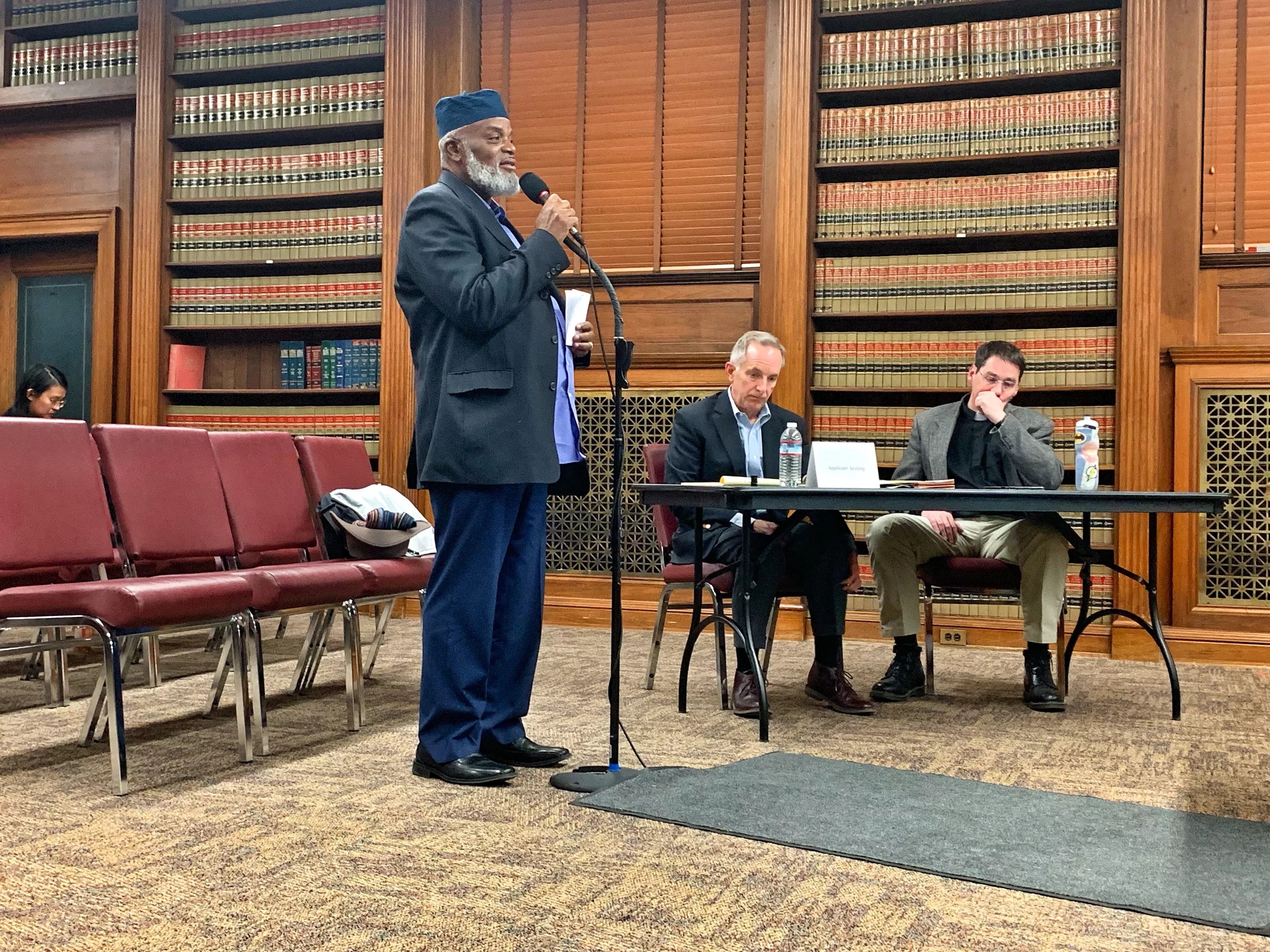
Conor McCormick-Cavanagh

Audio By Carbonatix
As people from around the U.S. flock to Denver for jobs and our endless sunshine, longtime residents are being pushed out. And many who remain have fought against gentrification for years. “Nobody is really listening to the residents. Yes, change is coming. It’s coming. But we can control how it comes. We can control how it impacts the root residents, the people that have been there forever,” said Park Hill resident Cecilia Underhill at a December 19 Denver Planning Board hearing.
Planning board hearings mostly determine how to zone certain projects; gentrification isn’t always a focal point. But Underhill and other community members still attended Wednesday’s meeting to voice their concerns about a development project and the need for affordable housing in the predominantly African-American neighborhood.
Matthew Kingsbury has been the pastor at Park Hill Orthodox Presbyterian Church since 1999. After declining membership began to hurt the church financially, its leaders decided to sell the northeast Denver location and relocate to Aurora, where the majority of its congregants now live. The church, at 3411 Albion Street, went on sale in December 2017 and is under contract.
The church sits on 31,200 square feet and includes a parking lot and plenty of empty space. As part of the sale, the church has to reclassify its zoning category from single-use to mixed-use to give the next owner the chance to construct a two-story residential building that will include at least one storefront.
But residents are concerned that as long as affordable housing isn’t packaged in with these types of development projects, Park Hill will continue to struggle with gentrification.
Imam Abdur Rahim Ali runs the Northeast Denver Islamic Center, which is across the street from the former church. Ali has been pressuring Len Goldberg, the developer set to break ground on the property, to apply for a five-story mixed-use permit instead of a two-story one and include affordable housing in the development. “Without affordable housing, the people of Park Hill are going to be squeezed out of Denver,” says Ali.
The Community Planning and Development office recommended that the zoning board approve the rezoning application as it stands. The board agreed, voting six to one at Wednesday’s meeting in favor of the application to rezone the plot to allow for a mixed-use, two-story development.
Even though the board didn’t side with neighbors, Goldberg will still have to contribute to Denver’s affordable housing. If his property doesn’t include such units, he will have to pay a fee of $1.55 for every square foot of his development into a city fund for affordable housing, a stipulation that went into effect two years ago. The city requires this fee any time a building permit is issued for a housing structure that doesn’t include affordable housing.
Ali and his colleagues have their own plan to rezone the plot of land where their mosque resides and build affordable housing on their parking lot. He says the mosque has been working on this project for years and has an architectural rendering of the proposed development, which the zoning board needs to approve.
“At some point, you have to draw a line in the sand to stop this gentrification from happening in Park Hill,” says Ali.